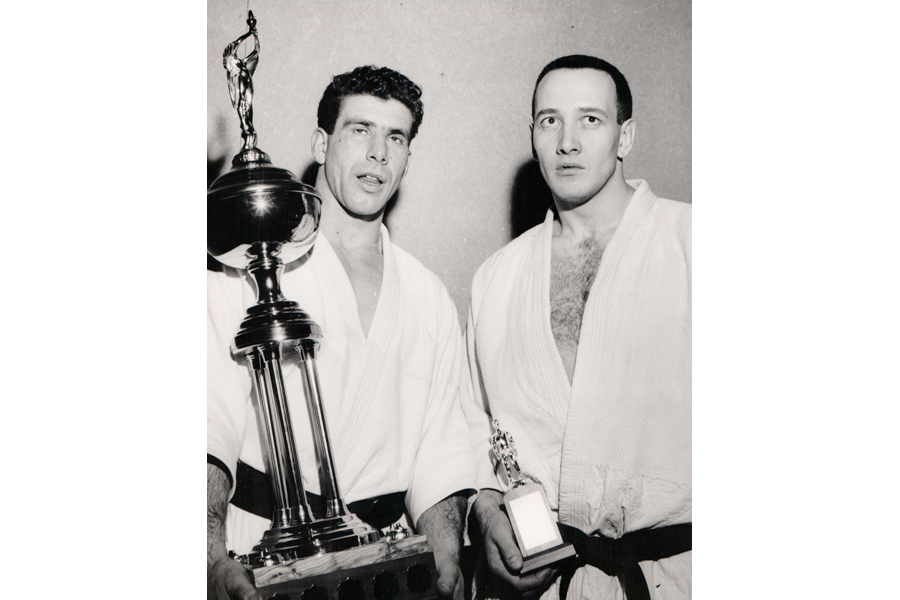
Judo Canada

Montreal, May 15, 2019 – We often hear that judo is a sport for life. René Lalonde, 88, is a concrete example of that saying. 60 years ago, he was the silver medallist at the Canadian Judo Championships in Winnipeg. He was a true national vice-champion, as the weight classes didn’t exist then, making that result even more impressive.
60 years later, nearly 1000 Canadian judokas will have a chance to follow his footsteps during the Canadian Open Judo Championships held in Edmonton on May 16-19 as part of the biggest national championship in Canada.
“I had a good life, and I didn’t become a millionaire; but I had fun, and when you have fun, it’s not hard. It’s more interesting to do something you like!” remembered Mr. Lalonde.
His philosophy can certainly be an inspiration for the athletes in action from Thursday to Sunday in the capital of Alberta.
Still in Shape
“Judo is a sport that can be hard. I’m too old to be smug on the mats, but I can still teach and show new things. It’s like cycling: you’re not a champion, but you know how to do it, and you go at your own pace. My wife is just like me: at 85, she can still do chin-ups! I can’t do that anymore, because my arm hurts,” he added, laughing.
In addition to regular training at the gym, he still occasionally visits dojos to share his passion for judo and show young athletes how to tie their belt.
“I enjoy it, because that’s what I made of my life. And that interest never dies.”
Judo on Top of the List
René Lalonde started practising judo when he was 18 years old. After training in several sport at the Palestre Nationale in Montreal, mostly combat sports like boxing and French foot boxing, he switched to judo.
“I found judo to be more interesting than boxing. After a while, you get tired of getting punched. I wasn’t afraid in boxing, and it was good for me to learn that sport, because I also taught karate, and both sports have a lot in common.”
He started his own school in the ’50s, and was the owner for 40 years. At first, he managed the school simultaneously with his athletic career.
“I taught to earn a living, and I was working from 10 AM to 10 PM, 6 days a week. On Sunday, I was competing in tournaments. It wasn’t easy, but I was happy, and I did it!”
Amongst his students is renowned Doug Rogers, silver medallist at the Tokyo Olympic Games in 1964 and heavyweight bronze medallist at the Word Championships the following year. Mr. Lalonde also thought about moving to Japan to perfect his art, like his compatriot, but his family’s appeal was stronger.
“When he (Rogers) left to train in Japan for years, we fought against each other in a tournament when he came back, and he beat me on the floor. I saw a difference in his combat style. When we go somewhere else, we always learn a little bit more, and that’s what I was lacking.”
Today’s best judokas don’t have to move to another country thanks to the facilities at the national training centre in Montreal. With the Canadian medals won over the years by Canadian athletes in prestigious judo and parajudo competition, the athletes owe a part of their success to pioneers like René Lalonde.
 www.judocanada.tv www.judocanada.tv
Buy tickets online at http://judonationals.org -30- Written by Sportcom for Judo Canada
Information:
Patrick Esparbès
|